Visiting the Paupers Field: A Conversation with Dylan LeBlanc
16 min read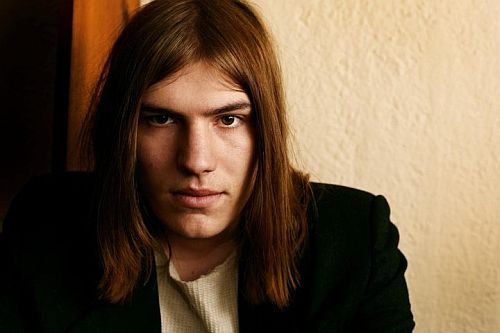
Sometimes music just takes you to places that you would never otherwise go. Places like Paupers Field. It only took one listen to also decide that Dylan LeBlanc’s story telling is masterful. I don’t say it often. But there is something special about this album and I suspect there’s something special about this kid too. Paupers Field boasts a lyrical richness and an emotional depth that we don’t often find in new music. It’s the kind of depth that a young Dylan LeBlanc admits has everything to do with how he grew up and who he chose to surround himself with. As I was on the phone with the 19 year old kid from Louisiana and listening to Dylan talk about his journey and his process, I realized that he was showing me the soul of a Louisianan on a hot summer day. That was a good thing. Because it was a place without the pretension of this generation’s media savvy music marketers that I’ve grown used speaking to on interviews. For the kid from Shreveport, talking about music can’t be anything else except a raw and visceral experience. I suppose when it’s 104 (like it was for Dylan on the day that we spoke), everything else melts away leaving just enough room for the things that matter – like good music. And good music can be a trip. So kick back, grab yourself a beverage and let’s take a trip to the Paupers Field, shall we?
C6M: Hi Dylan, how are you?
Dylan LeBlanc: I’m good, how are you doing?
C6M: I had a chance to listen to Paupers Field, and I was just wondering how you came up with the concept of that.
Dylan LeBlanc: Well, I was sitting on the back porch of Trina Shoemaker’s house and we were talking about a lot of different stuff, but anyway she was telling me about the pauper’s field that she used to go to in New Orleans, kind of like an estate and stuff – and what not.
Then we were talking about this record and all these — and she was like, “It’s like all these characters and all these people and all this music, like it’s all buried in the pauper’s field,” and what not. So, that’s kind of how we came up with it.
C6M: Yeah. Well, it definitely feels like there is a reflection feeling to it, like a story that might have been told like on a hot day, if that makes sense.
Dylan LeBlanc: Yeah.
C6M: Was there then an intentional feeling that you were trying to come up with when you were writing the music then, as far as the lyrics go?
Dylan LeBlanc: Definitely, yeah, an intentional feeling, I think there’s always an intentional feeling when anybody is writing the music to their songs or to an album. On this album, I was trying to — I wasn’t trying to do anything.
I was feeling a certain way in how I wrote the songs, you know what I mean? That’s basically what this album is all about. I tend to give different answers in different interviews, it’s so funny. I never know how to answer right in interviews.
C6M: Well, that’s okay.
Dylan LeBlanc: But I’m pretty like that, I get nervous. I don’t know what the heck is wrong with me. (Laughing) So, tell me about yourself, no, I’m just kidding. Anyway, this particular — to answer your question, yes; I wanted to make this album, so I wanted to make it as — I wanted to make it beautiful.
I’m not sure if I did that correctly or not, but I just wanted to give people something to listen to, that’s a little bit of stuff that — or something that I would like — things that I like to listen to, as far as musically goes and then lyrically, I think I just wrote stories that have little or nothing to do with my personal life and then everything to do with my personal life.
C6M: Right, right.
Dylan LeBlanc: So, I’m trying to mix it up and not make it too obvious, it’s kind of hard, but…
C6M: Well, what was the reason for then recording live? I mean normally people, they lay down guitar tracks, drum tracks, vocals and I was just reading that you wanted a very live feel to this.
Dylan LeBlanc: Well, I think that — I just love the way that — I think you capture a performance live that you can’t capture. I really believe that, like I really believe that you capture magic live when you do things a certain way. Like if you record live, you get every element — you get all of a person who is playing the instrument.
C6M: Right.
Dylan LeBlanc: Because they’re extremely vulnerable at that period of time to make whatever kind of mistake that they’re going to make.
C6M: Right.
Dylan LeBlanc: It makes it more interesting.
C6M: Yeah, so do you hear those?
Dylan LeBlanc: And the performances are better.
C6M: Do you hear those mistakes when you go back and listen, and does it bug you at all or is it just it is what it is?
Dylan LeBlanc: No, because I think it is what it is. I think that if like sometimes you’ll sing a vocal that’s really good, but the feel part is not good enough, but the vocal was good. For some reason, I’ll listen to it over and over again and it starts to become more and more home, like if you see something over and over again.
At this point in the conversation, Dylan puts the phone down and talks to his mom. I sit there, feeling like this is one of the more endearing parts of the conversation – a glimpse into the man who genuinely loves his mother. When he returns to the call, I want to say that I admire this, but I don’t. Would you?
Dylan LeBlanc: Sorry man. I went to eat with my mother, and me and her have been kind of — we’ve been distant for a while but me and her are trying to get back on the right track.
C6M: Right.
Dylan LeBlanc: I don’t know. I’ve been a bad son for the past while…anyway.
C6M: Well, but you’ve been on the road too though, right?
Dylan LeBlanc: Yeah, yeah, I’ve been gone. I don’t live in Shreveport that much. I stay here. I come here when I need to come here and like when I want to get away from Muscle Shoals and then I get to Muscle Shoals when I’m not doing anything. When I got back from LA, I didn’t have anything going on for a while, after that show at the El Rey.
C6M: What did you think of Los Angeles?
Dylan LeBlanc: I thought it was interesting, I thought it was very interesting.
C6M: Yeah.
Dylan LeBlanc: I thought it was kind of — it was really pretty, like the weather I loved mostly about it. It’s perfect weather, like toward the coast, and San Francisco was perfect weather too.
C6M: Yeah. What about that?
Dylan LeBlanc: I liked it because it wasn’t hot and here right now it’s a 103 degrees.
C6M: Right, right. What did you think of the people? That’s usually the thing that — it’s the deal breaker. I’ve noticed when people come out to Los Angeles, they say, “I love the weather, but I want to go home.”
Dylan LeBlanc: Yeah, the people are interesting people. I found it to be very — like people were very nice to me and very open, but I did notice a certain like — there’s a big liberal — it’s very liberal town. I think California is very liberal. I don’t know, but I’m such an idiot, from Shreveport, Louisiana, I don’t really know [laughter].
But no, they were really not kind of — I remember when I left the El Rey, like people were really nice and if somebody is nice to me, then I’m most likely going to be kind to them.
C6M: Right.
Dylan LeBlanc: So, as far as people go, it doesn’t really matter what kind of person they are, I guess.
C6M: Right.
Dylan LeBlanc: Unless, they’re just an axe murderer or a politician.
C6M: Right. Sometimes that’s both the same thing, right?
Dylan LeBlanc: Yeah, exactly.
C6M: Well, let’s get back to the music.
Dylan LeBlanc: Yeah.
C6M: I mean talking about your music, and let’s talk a little bit about your influences. I was recently talking to Zakk Wylde and he was telling me how he talked to Jimmy Page and they were — Jimmy Page had introduced him to an entire catalog of influences, and it felt like he needed to chase that down.
Do you feel like you’ve had similar experiences, where along the way someone said, “Hey, you need to listen to this,” and that sort of contributed to who you are and what you play now?
Dylan LeBlanc: Yeah, yeah, absolutely. My friend, my piano player, he’s like an engineer and he’s also a great musician, and he engineered a lot of this album.
But anyway, like throughout my whole period of time, he’s like been there — he’s a little bit older than me, so he’s kind of watched me grow gradually, and along the way he would just hand me like cool records sometimes, like he’s the one who introduced me to Townes Van Zandt like a year ago. I never really — well, I’ve heard of Townes from my grandmother and all of them, but he was really cool.
C6M: Alright.
Dylan LeBlanc: But it’s hard to get into Townes Van Zandt if you’re not — because it’s just — finally something happens along the way you listen to it.
C6M: Yeah, it’s probably like a — I noticed that a lot with music. Sometimes you just have to be in the right place too.
Dylan LeBlanc: Exactly. Like it depends on what mood you’re in, but you can’t force something down anybody’s throat and I’ve often tried to do that. When I’m really into something, I’ll be like, “Man, you have to listen to this,” and “This is why this is good.”
C6M: Yeah.
Dylan LeBlanc: And then sometimes people are just like, “Yeah, yeah, yeah” and it’s when they’re by themselves and they need it, it’s when it really rings a bell with them, you know what I mean?
C6M: Oh yeah, absolutely.
Dylan LeBlanc: The right time and the right place.
C6M: Absolutely.
Dylan LeBlanc: Music is weird. You know? You can’t do anything that hasn’t already been done and you can only do what you feel in your heart and put it down on a piece of paper and put it down on a piece of tape and record it.
C6M: Right.
Dylan LeBlanc: So, I did that mostly on this album. Not trying to — I wasn’t striving to be — I just strived to do what — I mean I meant everything that I put out on this album, because I can honestly say that it came from where I was. It’s definitely where I’m coming from and it’s definitely who I am as a person. It definitely shines through on this record.
C6M: Right. Well, it does, it does definitely. What I noticed, at least in the little bit of press that I have been able to read on this so far, since it’s relatively new coming out, is that one of the biggest things that people talk about you as a song writer, the praise that they give is the depth of that feeling, and normally they’re surprised how young you are. When they find out how young you are, that’s the second thing that is said…
Dylan LeBlanc: Which really shocked me to tell you the truth; it’s shocking because there are so many other young people that are my age doing the same thing, if not better than me, and that never gets talked about or discussed.
C6M: Right.
Dylan LeBlanc: But I mean it’s not — I’ve spent a lot of time by myself. Most of my life I’ve spent on my own trying to figure out who I am as a person and I think that that time — and now I’m so used to it that I think it’s natural to me and I just feel natural and just everyday trying to figure out why I feel a certain way or what’s wrong with me, things like that and spending so much time alone, too much time alone can be the worst thing for anybody.
C6M: Right.
Dylan LeBlanc: But actually, I like it. I catch myself nowadays embracing that time alone and since I was — basically since I was 16 years old, I think would be the top growing point for me. Something changed, and I’m not sure what happened, but my whole outlook on like this — I just started trying to grow, and I wanted to dig deeper into everything and dig deeper into my thoughts and dig deeper into the way I feel and trying not to — and trying to make use of it.
C6M: Right.
Dylan LeBlanc: Instead of being a bump on a log or a drunk.
C6M: Yeah. Well, do you think that one of the…
Dylan LeBlanc: Where you can’t help anybody.
C6M: Yeah, well do you think that normally the reason why people are so surprised is maybe, just maybe a prejudice of some sort against — I mean it sounds weird to say that but maybe a prejudice that young people usually don’t care or don’t have much depth, don’t think about these things. You think that’s basically the surprise?
Dylan LeBlanc: Maybe. Maybe that’s what it is, but the people that I grew up around, they’re not my age. I never had friends that were — like I never hung out with like the people that I went to school with or outside the school. The people that I cared to hang out with were — I’ve always really — I was really drawn into people like me, people that felt awkward and lost and all those things, that seems as if we’re all just a bunch of assholes feeling sorry for ourselves and that’s what we do.
C6M: Right.
Dylan LeBlanc: That’s the kind of people I guess I hung out with, but when you dig deep in those people, they say things to you that hit home, and I hung out with those people, like my drummer John, I mean he’s such a deep person and his playing came through on this record.
I have my circle of people that I just absolutely love, in my comfort zone and the people that I would — that I know that I could be around for the rest of my life.
C6M: Right.
Dylan LeBlanc: And that I can love for the rest of my life. I chose those people very carefully throughout my life. We really got to know each other on a personal, like a seriously personal level in a very — all of our relationships are very strong, and they’re all exactly — we’re all just the same. That’s what I love about this record too.
I have a story with every single person that I’ve played with on this record and that contributed to this album. We all have our — we’ve all fought really hard, we’ve all been angry at each other, every emotion. Like we’ve all — we’ve been through a shitload together.
C6M: Right.
Dylan LeBlanc: Everybody. We know each other better than anybody. We probably know each other better than our parents know us. It’s really weird. Speaking of parents, my father did play on record as well.
C6M: Alright, I was about to ask that, because I noticed that you’d mentioned spending a lot of time in studio and he was a studio musician. Did you…
Dylan LeBlanc: More so than a studio musician he’s a song writer, like a country songwriter.
C6M: Right.
Dylan LeBlanc: I mean he wrote for a lot — he writes for a lot of commercial country, but he’s such a good songwriter, like that stuff that you hear on the radio is nothing compared to like his catalog of music. And our relationship is so insane and so intense that it’s unbelievable.
He’s such a cool fucking guy, man, like he’s in town right now and his birthday is this Sunday and we’re all going to celebrate, but I don’t know, like every time I get around him, he’s just — he is the most — he is a fuckin’ original dude. I mean he’s fuckin’ amazing man and he’s such a good musician and he’s so damn smart.
C6M: So, do you find yourself picking his brain a lot, when you’re coming up with your own stuff?
Dylan LeBlanc: Well, growing up, me and him we were like friends or something, you know what I’m saying? It wasn’t — it’s not like a — we don’t really have that father-son relationship, because the time that we spent together has been mainly music. Yeah, so I have picked his brain a lot and I have asked him questions and I have — I got the opportunity to just hang out with that guy, you know what I mean?
C6M: Right.
Dylan LeBlanc: Like you would hang out with one of your friends or something. It was interesting. I don’t do anything with him that I don’t do with any of my other friends.
C6M: Right.
Dylan LeBlanc: We just hang out together. We talk. We have a good relationship now. There were some times when we didn’t — we’ve struggled through our problems and things that we had, and I don’t know man. I think the world of him, and I think that he’s such a — I’ve always thought that he was a great songwriter and a great singer. If you ever hear him man, like his old stuff he was my age and he was singing, it’s like the voices are exactly the same. It’s really — but anyway.
He did play for this record, and he played guitar for most of it — not most of it, but he played bass on like a lot– and he sang background which was really cool. He’s done some shows with us — and I absolutely love it when he plays shows with me, because it’s like the best feeling in the world, because we’re so in tuned, like musically and I know that without a shadow of a doubt it’s going to be absolutely correct and great and there’s a certain sense of comfort.
But then I also like playing, like with Jessie, who’s another bass player. There’s a certain sense of like “This is going to fall apart at any minute, and are we going to be able to make it?” Then that kind of feels cool as well, it’s very thrilling in a certain way, I don’t know.
C6M: Do you feel like music, do you pick the music that you play or does music just kind of pick you?
Dylan LeBlanc: I definitely think music picks me. I think a lot of people — I haven’t been really surprised, but a lot of people do like — they see it’s like country, like Americana folk music. I think it picks me. I think that I like — just whatever I feel in my heart, there’s things that I definitely like, that I definitely strive to do when I write music, like a melody.
I always — there’s melodies that I come up with, that I feel like they are just like who I am, like especially with melodies and lyrics and stuff like that, that I really like. If it makes me feel something in my heart, I would hope that it made feel somebody else out there — so it does pick me in a way, I guess.
C6M: What’s your current guilty pleasure musically?
Dylan LeBlanc: Guilty pleasure?
C6M: Yeah, the thing that you probably wouldn’t tell anyone that you were listening to. I get some interesting answers every now and then. Some people say Lady Gaga or something, whatever.
Dylan LeBlanc: I really don’t have any guilty pleasures, because if I think it’s good I’ll listen to it whether or not it’s this or that. I don’t know man, if it makes me feel good, then I’ll listen to it.
C6M: Yeah. Well, what’s in your iPod right now?
Dylan LeBlanc: Right now, I don’t know. I got Sweet Dream Woman by Waylon Jennings playing right now.
C6M: Awesome. Alright Dylan, thank you so much for taking the time to talk to me. Good luck with your album and I hope that you have fun at the rest of your touring.=
Dylan LeBlanc: Well, thank you, man. Thank you for interviewing me and taking the time to do that, that’s very kind of you.
C6M: No problem.
Dylan LeBlanc: Nice of you. I appreciate you doing this and helping me getting my name out there and that kind of stuff.
C6M: Absolutely, the album is awesome, and yeah we’ll do everything we can to let people know how good it is.
Dylan LeBlanc: Man, I appreciate that, thank you. You all have a wonderful day now. It was nice talking to you.
C6M: Alright, you too.
Dylan LeBlanc: Alrighty.
C6M: Bye.
Dylan LeBlanc: Bye.
Paupers Field is proof that music doesn’t always have to follow the same conventions or formulas to have a soul. The album is solid and deliberate. The music goes beyond Americana in some ways and speaks not just to a way of life, but to our humanity. And I think that’s what hasn’t been said yet about this kid. He’s on a road that probably makes the most sense on days when you need to sit by yourself and try to understand not just who you are, but why you are. If you haven’t picked up a copy of Paupers, you really should. I guarantee it will be something that will resonate with you on those hot summer days.


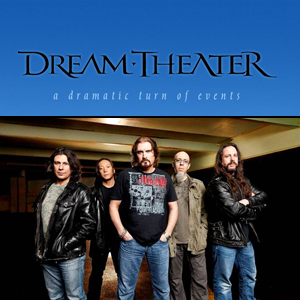
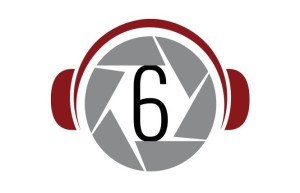
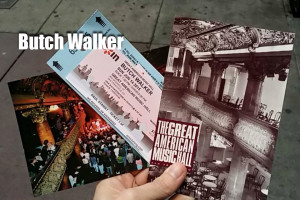
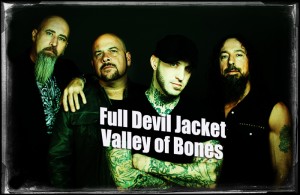
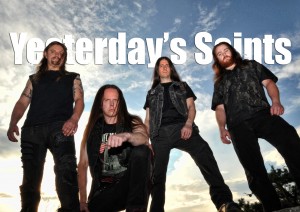
I love this guy!